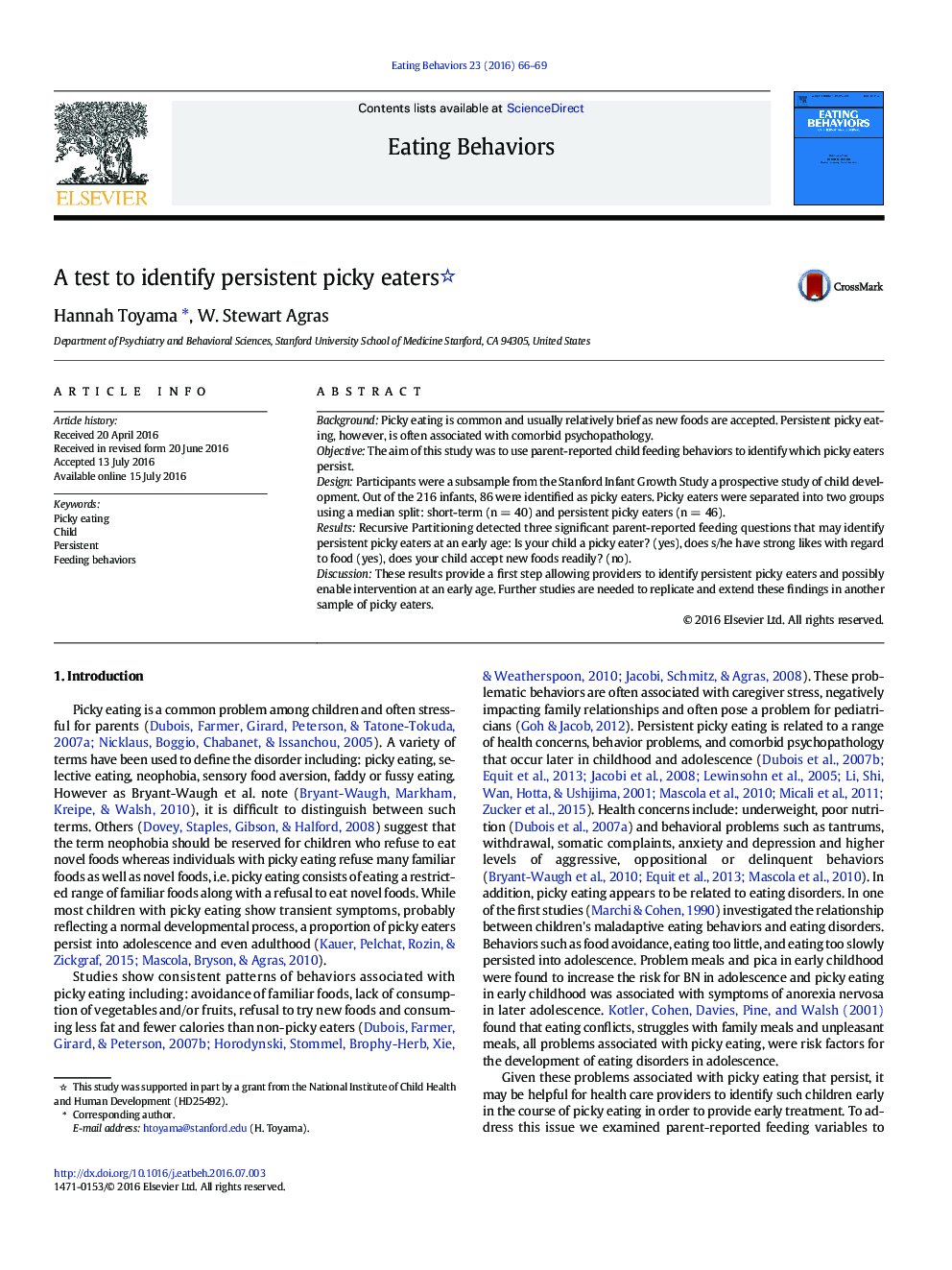| Article ID | Journal | Published Year | Pages | File Type |
|---|---|---|---|---|
| 906175 | Eating Behaviors | 2016 | 4 Pages |
•Persistent picky eating is associated with comorbid psychopathology.•Feeding behaviors were used to prospectively identify persistent picky eaters.•Three of 18 feeding behavior questions were significantly associated with persistent picky eaters.
BackgroundPicky eating is common and usually relatively brief as new foods are accepted. Persistent picky eating, however, is often associated with comorbid psychopathology.ObjectiveThe aim of this study was to use parent-reported child feeding behaviors to identify which picky eaters persist.DesignParticipants were a subsample from the Stanford Infant Growth Study a prospective study of child development. Out of the 216 infants, 86 were identified as picky eaters. Picky eaters were separated into two groups using a median split: short-term (n = 40) and persistent picky eaters (n = 46).ResultsRecursive Partitioning detected three significant parent-reported feeding questions that may identify persistent picky eaters at an early age: Is your child a picky eater? (yes), does s/he have strong likes with regard to food (yes), does your child accept new foods readily? (no).DiscussionThese results provide a first step allowing providers to identify persistent picky eaters and possibly enable intervention at an early age. Further studies are needed to replicate and extend these findings in another sample of picky eaters.
